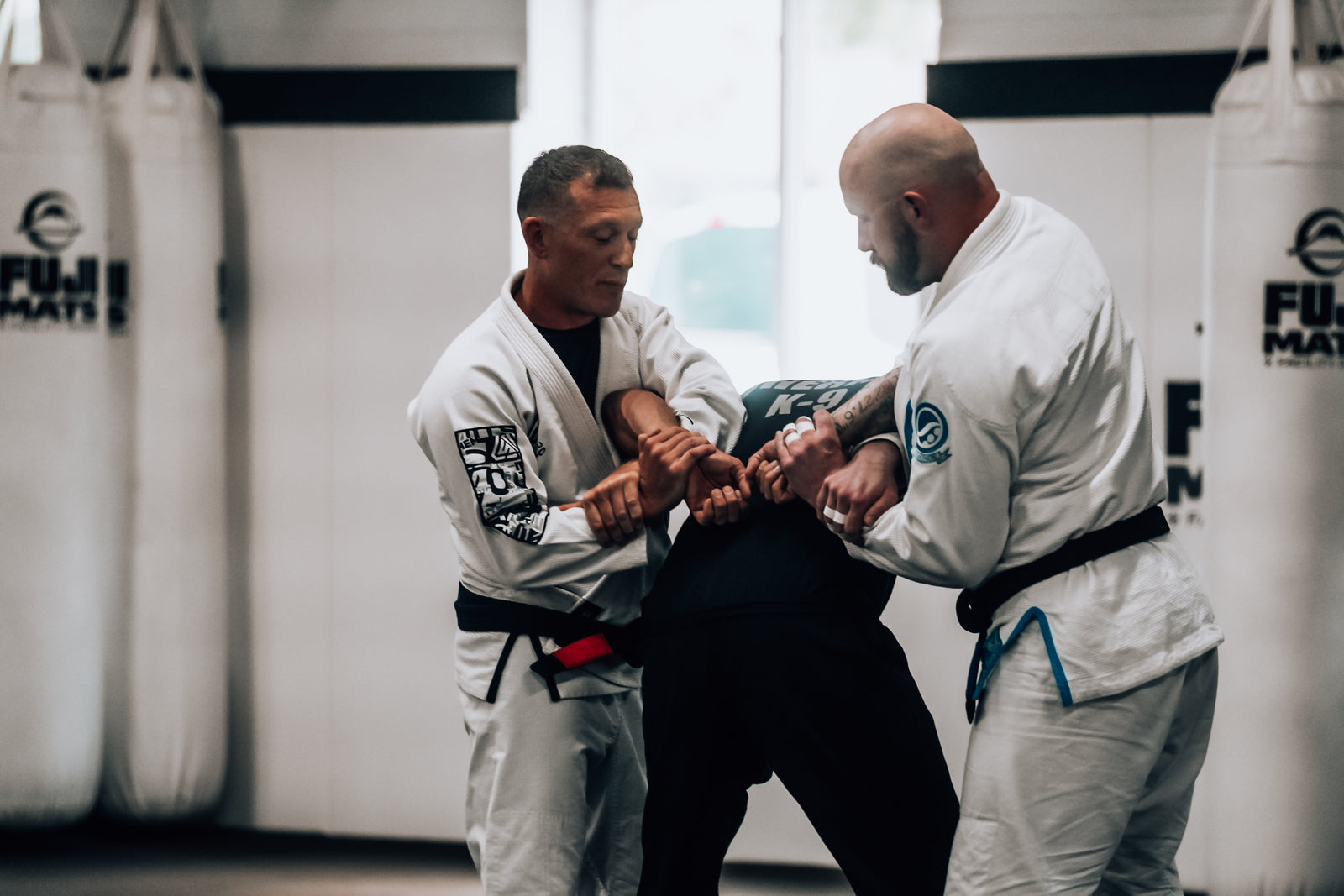An Introduction to Jiu Jitsu for Cops

As a Police Officer, you frequently deal with uncooperative subjects. You work long hours, lack sleep and start to feel the stresses of the job over time. Jiu Jitsu training is the perfect solution to all of these problems. If you're new to the art or have been considering starting training, here's a brief intro into what Jiu Jitsu is and how it can help improve your life.
Understanding Brazilian Jiu Jitsu (BJJ):
Jiu Jitsu is a martial art with roots in Japan and refined in Brazil, focused on grappling and ground fighting. It focuses on technique and leverage over brute strength, making it ideal for law enforcement where officers often encounter larger or stronger subjects. Jiu Jitsu also teaches safer control and defense tactics, which are not only effective, but also look good in video.
Benefits of Jiu Jitsu for Law Enforcement:
-
Control Over Brute Force: Jiu Jitsu teaches you how to control subjects with fundamental concepts and techniques, instead of brute strength or in many cases, intermediate weapons. By using leverage based techniques, officers can restrain individuals effectively without causing unnecessary harm or relying on tools, which almost always escalate use of force encounters.
-
De-escalation Skills: The philosophy of Jiu Jitsu aligns with modern policing tactics that emphasize de-escalation. Understanding and applying submission holds can resolve conflicts without escalating to higher levels of force.
-
Confidence in Close Quarters: Many altercations occur at close range. Jiu Jitsu provides officers with confidence in these scenarios, ensuring they can protect themselves and others even in tight spaces.
-
Improved Physical Fitness: Regular training in Jiu Jitsu enhances cardiovascular health, strength, and flexibility, which are essential for the physical demands of law enforcement work.
-
Mental Resilience: Jiu Jitsu is as much a mental game as it is physical. It teaches patience, strategy, and calmness under pressure — crucial attributes for police officers, especially those working the street.
Implementing Jiu Jitsu in Training Programs:
Integrating Jiu Jitsu into law enforcement training programs requires a tailored approach. Instructors who understand both the art of Jiu Jitsu and the unique challenges of policing can create effective training regimens that respect the legal and ethical boundaries officers must navigate.
Real-World Applications:
Many law enforcement agencies that have incorporated Jiu-Jitsu into their training report positive outcomes. Officers are better equipped to handle physical confrontations, leading to fewer injuries for both officers and suspects. Moreover, the skills learned in Jiu-Jitsu often translate into greater overall decision-making abilities in high-pressure situations.
Go Train
Jiu Jitsu offers a comprehensive set of skills that align closely with the needs of modern law enforcement. By incorporating this martial art into their training, law enforcement officers can enhance their ability to resolve conflicts safely, effectively, and with a greater emphasis on control and de-escalation. As we continue to evolve law enforcement practices, Jiu-Jitsu stands out as a valuable tool in the arsenal of policing techniques.



